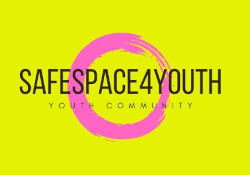

ABOUT
Through the SafeSpace4Youth project, project partners are working to directly engage youth workers, practitioners and young people in their communities to enable them to become local ambassadors for positive mental health promotion, prevention support and early intervention.
We build on the fact that 75% of all mental illnesses occur between the ages of 15 and 25. According to UNICEF’s State of the World’s Children 2021 report, three adolescents lose their lives every day in Europe due to mental health problems. Nine million young people in Europe (aged 10-19) are living with a mental illness, with anxiety and depression accounting for more than half of all cases.
Research shows that when young people start to show the first signs of mental health problems, early intervention is key to preventing these difficulties. Mental health status not only affects the overall sense of (un)well-being in life, it also plays an important role in the employability of young people in the labour market. Therefore, it is essential to support youth workers and young people to have access to the services and resources they desperately need.


AIMS AND OBJECTIVES
Through the SafeSpace4Youth project we aim to work directly with youth workers, professionals and young people in their communities, to empower them to become local advocates in promoting positive mental health through social action.
FOR YOUTH WORKERS
1) To train youth workers in prevention and early intervention in relation to young people’s mental health and well-being.
2) Supporting youth workers to create safe spaces in their local context to explore topics of mental health, wellbeing, self-awareness and purpose with young people.
3) Offer opportunities for continuous professional development enabling youth professionals to embed social action methods within their current practice through a Train-The-Trainer Programme based on the SS4Y Social Action Toolkit.


FOR YOUTH
1) To train and encourage young people to implement prevention and early intervention measures at a local level to address poor mental health among their peers through a bottom-up approach.
2) Offer opportunities for young people to engage in social action projects. Therefore they can develop their emotional and social capabilities by becoming more self-aware, receptive, motivated, resilient, confident and effective communicators. This can motivate them to learn how to take personal responsibility for their futures.
